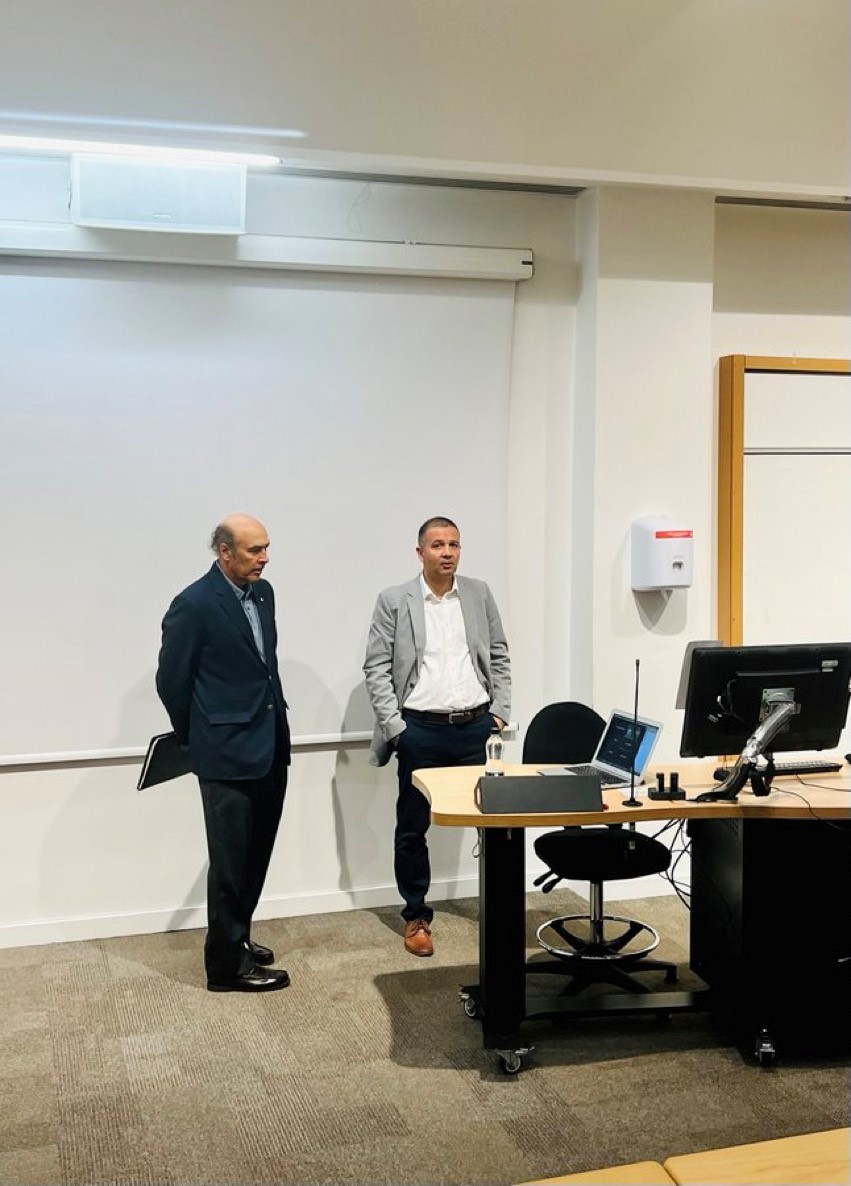PhD candidate Giulia Grillo attended this great opportunity to hear about a career journey from the diplomatic deep end.
On May 26th, the Conflict Analysis Research Centre (CARC) hosted the former US’ Ambassador Hugo Llorens, successful US diplomat, but also a University of Kent’s alumnus. He is currently in the UK with his wife, Lisett Aparicio Llorens, for a holiday but did not miss the opportunity to come back to Canterbury to visit his alma mater. Thanks to the director of CARC, Professor Loizides, our School had the chance to attend two meetings with former ambassador Llorens.
The first meeting focussed on the US National Security Council (NSC), where Llorens served as Director of Andean Affairs between 2002 and 2003. During this first meeting, Llorens talked about the role of the NSC in the US political system and what his job consisted of. It was fascinating to hear about the relations and dynamics between US Presidents and the NSC, and how dependent on the personalities and (career) background they are, and not on their political affiliations. Moreover, it was fascinating to listen to a short history of the NSC, which further showed how the efficiency and efficacy of governmental and institutional offices are highly dependent on the people working there and the relations between them.
The second meeting, instead, covered Mr Llorens personal experience and how he succeeded in landing the job that he wanted since the beginning of his university studies. In this regard, he talked about how he had to sit the exam for the US Foreign Office three times before being admitted and that being a student at the University of Kent was fundamental for his final success. In fact, he explained that having to engage with a multicultural environment and participate in seminars through group work and presentations helped him gain the right communication, organisational, and team-work skills that are essential for his job.
Also, in this second meeting, former ambassador Llorens could provide all of us with a more detailed account of his job. Particularly, he did not hide that sometimes there are difficulties to deal with, especially when facing political crises that can have important consequences for international politics and the international system. Neither did he hide the fact that for the very nature of this job, private life is very much affected, and that it also affects the life of other members of one’s own family. Yet, despite this, Mr Llorens affirmed that “the most interesting and richest aspect” of his job is the human experience. It allowed him and his family to meet great people as well as learn a lot about the world.
Meeting former ambassador Llorens and his wife, both so amiably talking to students, was a great opportunity for our School, allowing us to learn about all the different routes that a degree in Politics and International Relations can lead to, as well as have a much clearer idea of how multifaceted the world that we study is.

